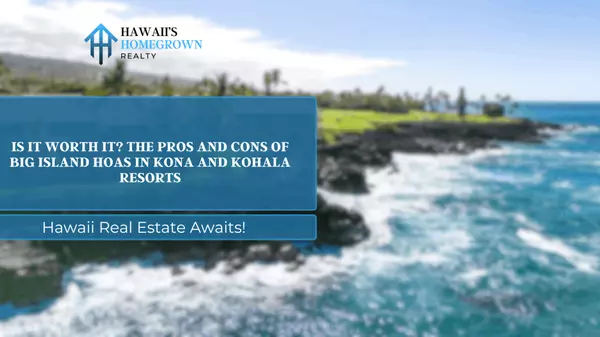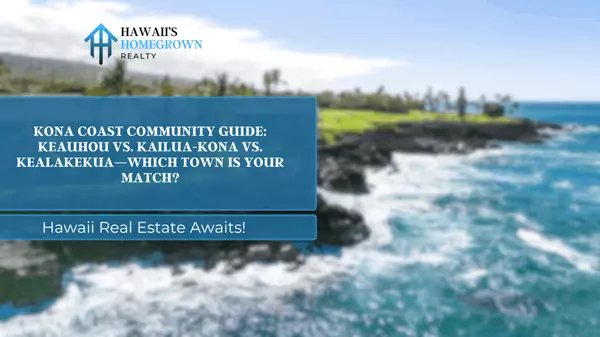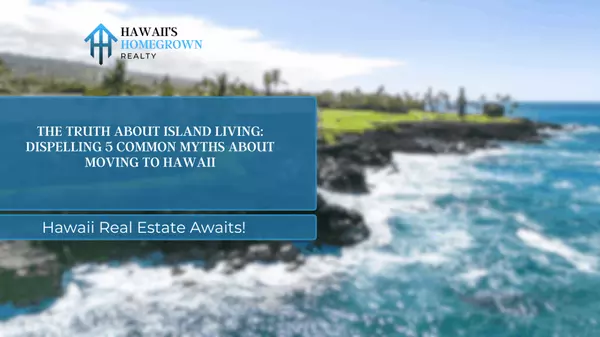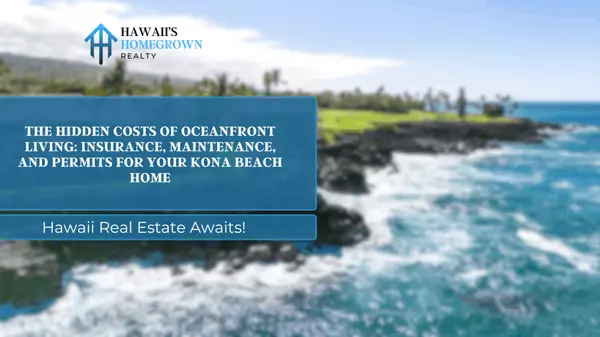What Do I Need to Know About Hawaii Housing Laws Before Buying a Home on the Big Island?
Purchasing a home on the Big Island of Hawaii is an exciting venture, but it’s essential to understand the unique housing laws that apply to this beautiful and diverse state. Hawaii housing laws are designed to protect buyers and ensure smooth transactions, but they differ from laws in the mainland U.S. Before you make a commitment, here’s what you need to know about Hawaii housing laws to help you navigate the home-buying process with confidence.
- Leasehold vs. Fee Simple Property
One of the key distinctions in Hawaii real estate is between leasehold and fee simple ownership. Most mainland buyers are familiar with fee simple properties, where you own both the land and the building. However, in Hawaii, many properties are leasehold, meaning you own the building, but the land is leased from another party. Leasehold properties can offer lower purchase prices, but the lease terms can affect long-term costs and property value. Before buying, it’s crucial to understand the details of any leasehold property, including the length of the lease, rent payments, and whether the lease can be renewed or converted to fee simple.
- Zoning and Building Restrictions
The Big Island’s diverse landscapes range from lush rainforests to volcanic rock formations, and zoning laws are designed to protect these natural resources. Hawaii housing laws establish strict zoning regulations that dictate what can be built and where. If you’re planning to build or renovate a home, you must comply with county zoning restrictions that determine property usage, building heights, and land development. Certain areas, especially those near volcanic activity zones or protected wildlife habitats, may have additional building restrictions to consider. Always consult local regulations before making plans for new construction or significant renovations.
- Property Taxes and Assessments
Hawaii has relatively low property tax rates compared to many mainland states, but it’s important to understand how these taxes work on the Big Island. Property taxes are based on the assessed value of the home, and rates can vary depending on whether the property is used as a primary residence, second home, or rental property. The state offers exemptions for owner-occupied homes, which can lower your tax bill if you plan to make the Big Island your permanent residence. Additionally, be aware of special assessments, which may be levied for community improvements or to cover damages from natural events like volcanic eruptions.
- Disclosure Laws
Hawaii housing laws require sellers to provide buyers with a Seller’s Disclosure Statement, which outlines any known defects or issues with the property. This law is designed to protect buyers by ensuring full transparency in the transaction. Sellers must disclose material facts that may affect the value of the property, such as previous termite infestations, flooding history, or proximity to lava zones. As a buyer, carefully review these disclosures and ask follow-up questions if anything is unclear.
- Natural Hazard Zones
The Big Island’s unique geography includes active volcanoes and areas prone to natural hazards such as lava flows, earthquakes, and tsunamis. Hawaii housing laws require full disclosure of properties located in natural hazard zones. For example, properties near Kilauea, an active volcano, are categorized into different Lava Hazard Zones based on the risk of lava flow. It’s vital to understand the risk factors for properties located in these zones, as it can impact insurance premiums and future property values.
- Homeowner Association (HOA) Rules
If you’re considering buying a home or condo in a planned community, be sure to familiarize yourself with the HOA rules and regulations. Many Big Island developments have HOAs that manage community amenities and enforce rules about property upkeep and usage. HOA fees can add to your monthly expenses, and the association may have restrictions on things like short-term rentals, exterior modifications, or landscaping. Make sure you’re comfortable with these rules before purchasing in an HOA-governed community.
- Short-Term Rental Regulations
With the popularity of vacation rentals in Hawaii, many buyers are interested in properties they can rent out for short stays. However, Hawaii housing laws include strict regulations on short-term vacation rentals, especially in residential areas. Before purchasing a property with the intent to rent it out short-term, make sure it complies with local ordinances. Some areas of the Big Island may require special permits for short-term rentals or limit the number of rental days per year. Violating these laws can result in fines and penalties, so it’s important to research thoroughly.
Conclusion
Buying a home on the Big Island is a dream for many, but understanding Hawaii housing laws is crucial to ensure a smooth and successful transaction. From zoning regulations and property taxes to natural hazard disclosures and short-term rental laws, being informed will help you avoid potential pitfalls and protect your investment.
If you’re ready to dive deeper into the specifics of Hawaii housing laws or need assistance with your home search, contact us today! We can help guide you through the process and ensure you find the perfect property on the Big Island.
Recent Posts











"My job is to find and attract mastery-based agents to the office, protect the culture, and make sure everyone is happy! "